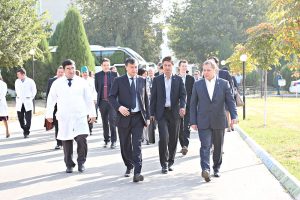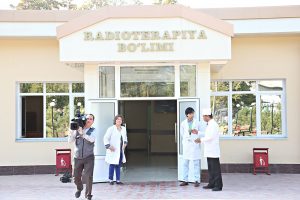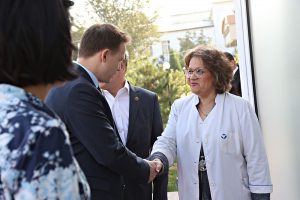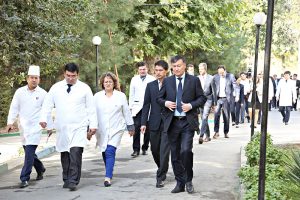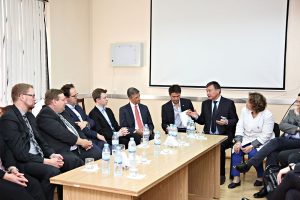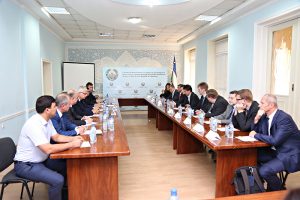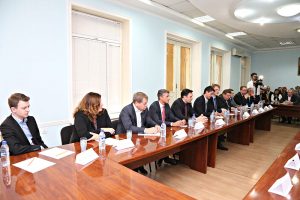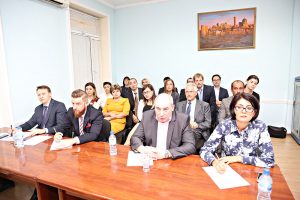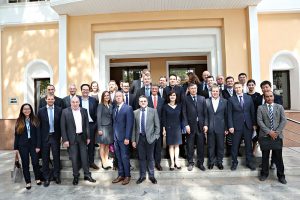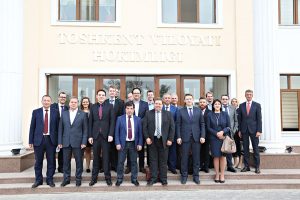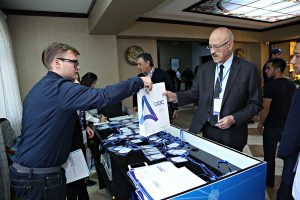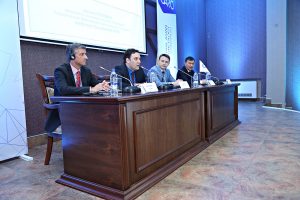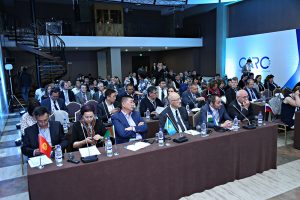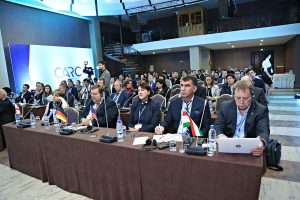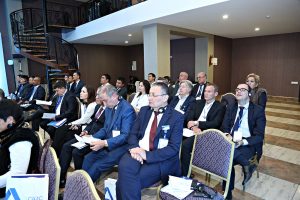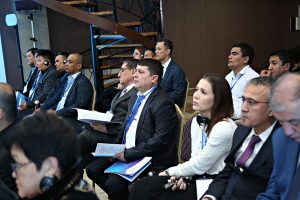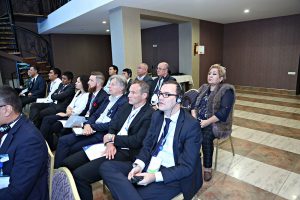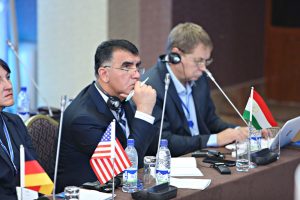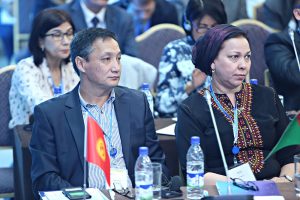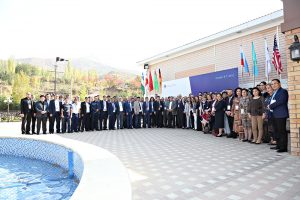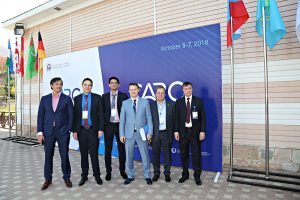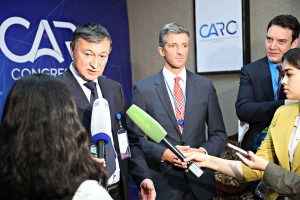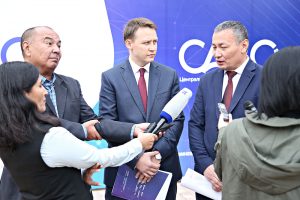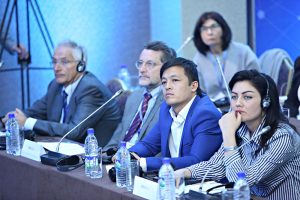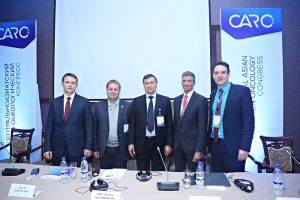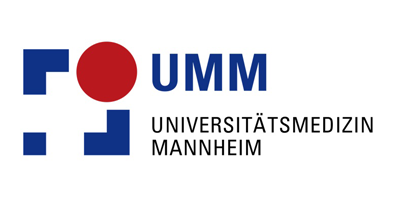AGENDA
5 October
08:30-18:30 — The series of the official meetings of the German delegation on a separate program, including the subsequent transfer of the delegation to the mountain resort complex “Layner” (Chimgan, Tashkent region)
16:30-18:30 — Transfer by tourist bus of the congress participants to the mountain-resort complex “Layner” (Chimgan, Tashkent region),
gathering and departure from the Republican Cancer Center
19:30-20:00 — Grand opening ceremony of the CARO-2018 congress, welcome speech from the organizers and official partners (Uventa Plus, OPASCA German Oncology Solutions, Ministry of Health of the Republic of Uzbekistan, City Hall of Mannheim, Khokimiyat, Tashkent Region)
20:00 — Official dinner, concert program
6 October
06:30 – 09:00 — Breakfast
08:00 – 08:45 — Registration of the congress participants
I session
09:00 – 09:20 — National Cancer Research Center of Uzbekistan
Prof. Mirzagoléb Tillyashaykhov, Ph.D. (Ru)
Condition and prospects of development of the oncological service of Uzbekistan
09:20 – 09:45 — University Clinic of Mannheim Prof. Frederick Wenz, Ph.D. (DE) Cancer Treatment in the 21st Century
09:45 – 10:05 — OPASCA German Oncology Solutions, Germany Alexej Swerdlow, Dr. of Sc. (DE) Modern radiation therapy as a means of fighting against cancer – Perspectives in Central Asia
10:05 – 10:25 — City Hall of Mannheim Kranz Claudius (DE) The city of Mannheim – is the center of modern high-tech medicine in the central part of Germany
10:25 – 10:50 — Moscow State University (MSU) Prof. Alexandr Chernyaev, D.Sc. (Ru) The development of medical technology in the XXI century
10:50 – 11:10 — Ashgabat Oncology Research Center Danatarova Altyn (RU) The practice of radiation therapy in Turkmenistan
11:10 – 11:30 — Coffee break, negotiations at the exhibition area
II session
11:30 – 11:55 — University Clinic of Mannheim Prof. Bjorn Wängler, Ph.D. (DE) Modern methods of visualization diagnostics in oncology
11:55 – 12:15 — Siemens Healthineers, Germany Dr. Minne van der Haak, (DE) Newest technologies of the visualization diagnosis for radiotherapy and radiology
12:15 – 12:40 — University Clinic of Munich Florian Kamp, Ph.D. (DE) The applying of visualization diagnosis in radiotherapy
12:40 – 13:00 — Varian Medical Systems, Switzerland Purina Dace (RU) The latest technology and capabilities in radiation therapy
13:00 – 14:30 — Lunch, negotiations at the exhibition area
III session
14:30 – 14:50 — German Federal Office for Radiation Protection, Alexandra Kamp, Ph.D. (Ru) From cobalt “guns” to linear accelerators.
14:50 – 15:10 — Ministry of Health of the Republic of Uzbekistan Prof. Damir Zaredinov, Ph.D. (Ru) State and ways of development of radiation oncology
in the Republic of Uzbekistan
15:10 – 15:30 — MC “Sunkar” Almaty Bakhtiyar Kerimkulov (RU) Experience of radiation therapy in private medicine in Kazakhstan
15:30 – 15:50 — Research Institute of Clinical Medicine, Georgia Topeshashvili Maia (RU) Achievements of the last decade in the development and quality assurance of radiation therapy in Georgia
15:50 – 16:15 — OPASCA German Oncology Solutions Central Asia and Uventa Plus Alexey Arapov, Ph.D. and Artyom Pokachalov (RU) Project of the development and the implementation of the German Cancer Clinic (GOC) in Uzbekistan
16:15 – 16:40 — Coffee break, negotiations at the exhibition area
IV session
During IV session — Closed meeting till 19:00: Implementation of the project “German Oncology Clinic”
16:40 – 17:00 — Tashkent Institute for Advanced Medical Studies and OPASCA GOS Central Asia Ten Oksana (RU) SanPiN Project of Uzbekistan on radiotherapy
17:00 – 17:20 — University Clinic of Leipzig Prof. Ulrich Wolf, Ph.D. (DE) Quality assurance and structural radiation protection for radiation therapy
17:20 – 17:40 — OPASCA GOS Central Asia Nadira Muratova, Ph.D. (Ru) Security questions during radiotherapy, prevention of adverse outcomes and medical errors in radio-oncology
17:40 – 18:00 — PTW, Freiburg Michael Goetz (DE) Comprehensive dosimetry solutions for radiation therapy
18:00 – 19:00 — Open session, negotiations at the exhibition area (OPASCA / OPASCA GOS, University Clinic of Mannheim / City Hall of Mannheim, Varian Medical Systems, Siemens Healthineers, PTW)
19:00 – 20:00 — Free time
20:00 — Dinner, concert program
7 October
06:30 – 09:00 — Breakfast
V session
09:00 – 09:25 — University Clinic of Mannheim Prof. Dr. Frederick Wenz ,Ph.D. (DE) Crucial report: Early diagnosis and prevention as effective means in the fighting against cancer
09:25 – 09:45 — Medical Radiological Research Center named after A.F. Tsyba, Moscow Igor Gulidov, Ph.D. (RU) Proton therapy in Russia
09:45 – 10:05 — Kazakhstan Research Institute of Oncology and Radiology Victor Kim, Ph.D. (Ru) Experience of using medical accelerators in the Republic of Kazakhstan
10:05 – 10:25 — National Medical Research Center of Neurosurgery named after ac. N. Burdenko. Prof. Andrey Golanov, Ph.D., Corresponding Member of RAS (RU) Stereotactic irradiation in the treatment of pathology of the central nervous system
10:25 – 10:50 — GIZ – German Society for International Cooperation Evelina Toteva, Ph.D. (Ru) GIZ: Health and Private Sector
10:50 – 11:15 — City Hall of Mannheim Dr. Jens Hildebrandt, (DE) The city of Mannheim is an innovative economic and cultural metropolis in the center of Europe
11:25 – 11:50 — Coffee break, negotiations at the exhibition area
VI session
12:00 – 12:20 — REC of Kyrgyzstan Aralbaev Rakhatbek, Ph.D. (Ru) The condition of radiation therapy in the Kyrgyzstan Republic
12:20 – 12:45 — RCRC of Ministry of Health of Tajikistan Zarobbidin Barotov, Ph.D. (Ru) Experience of radiation therapy in Tajikistan
12:45 – 13:05 — University Clinic of Mannheim Steil Volker (DE) The concept of training specialists in the field of radiation therapy for Central Asia at the University Clinic of Mannheim
13:05 – 13:30 — Moscow State University (MSU) Lykova Ekaterina, Ph.D. (Ru) The program of training medical physicists at MSU
13:50 – 15:00 — Lunch, negotiations at the exhibition area
15:00 – 16.30 — Summarizing, adoption of the resolution Congress closing ceremony, press conference
16:30 – 18:30 — Evening transfer of congress participants to Tashkent
19:00 — Departure of foreign congress participants from Tashkent
SPEAKERS
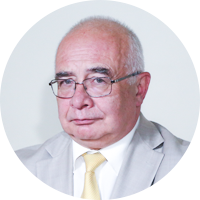
Prof. Dr. Alexandr Chernyaev
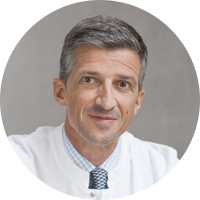
Prof. Dr. Frederik Wenz
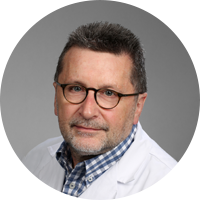
Volker Steil
Chief Physicist
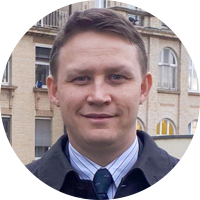
Artyom Pokachalov
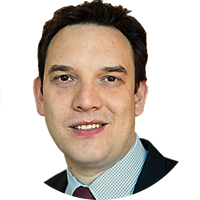
Dr. Alexej Swerdlow
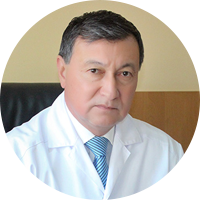
Prof. Dr. Mirzagoléb Tillyashaykhov
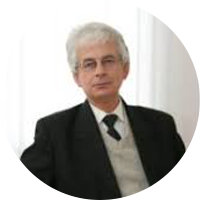
Prof. Dr. Damir Zaretdinov
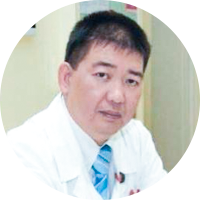
Victor Kim
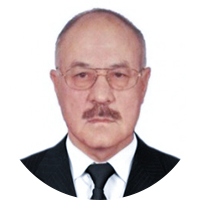
Dr. Marat Khodzhibekov

Ekaterina Lykova
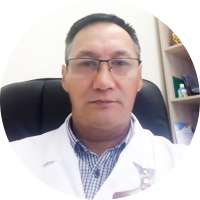
Prof. Dr. Rakhatbek Aralbaev
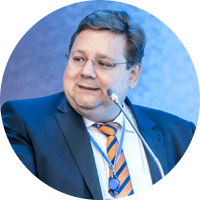
Claudius Kranz
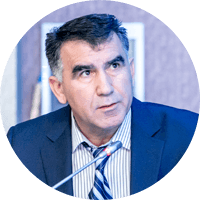
Dr. Zarobbidin Barotov
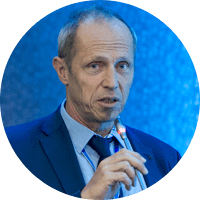
Prof. Dr. Wolf Ulrich
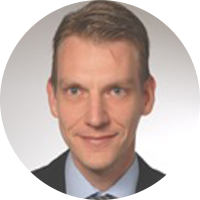
Prof. Dr. Björn Wängler
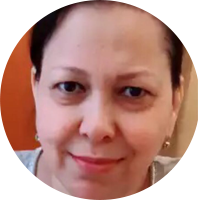
Altyn Danatarova
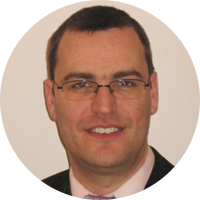
Minne van der Haak
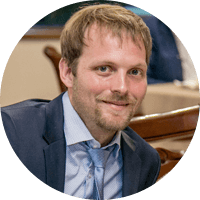
Dr. Florian Kamp
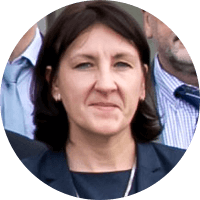
Dace Purina
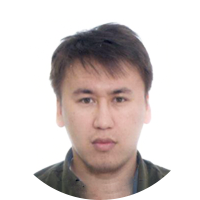
Bakhtiyar Kerimkulov

Dr. Alexandra Kamp
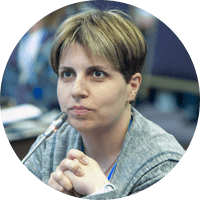
Maya Topeshashvili
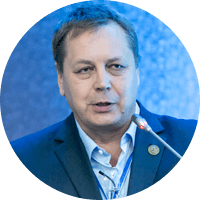
Alexey Arapov

Oksana Ten
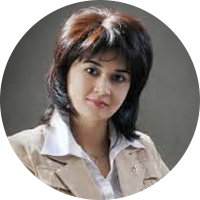
Dr. Muratova Nadira

Michael Goetz

Prof. Dr. Frederik Wenz
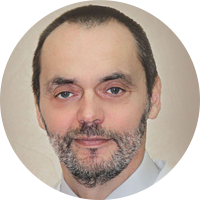
Dr. Igor Gulidov
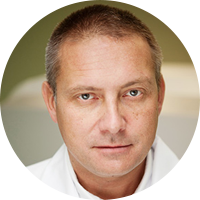
Dr. Andrey Golanov
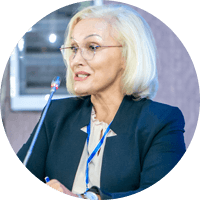
Dr. Evelina Toteva
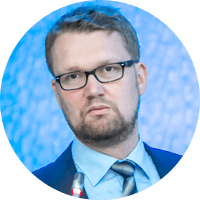
Dr. Jens Hildebrandt
RESOLUTION CARO-2018
«Modern achievements of radiation therapy and its prospects in Central Asia»
RESOLUTION
Availability of effective systems for the detection and treatment of oncological diseases is a recognized priority and an indicator of the quality of healthcare. The expert community of specialists in radio-oncology, representing Kazakhstan, Kyrgyzstan, Tajikistan, Turkmenistan and Uzbekistan, as well as Germany, Georgia and Russia, states an unfavorable situation in the fight against cancer in Central Asia based on modern high radio-oncological technologies.
The number of cancer patients in the region is approx. 0.3-0.6% of the population, which is an order of magnitude lower than the similar figures for the developed countries of Europe, North America and Asia. The reasons for this are seen, both in a higher proportion of young people among the population, and in the shortcomings of local on-screening programs. In this connection, it is possible to predict a significant increase in the number of cancer patients in the countries of Central Asia in the coming decades.
Radiation therapy has become the international standard of oncology of the 21st century, the use of which is recommended in ⅔ clinical cases. A sufficient level of radiation therapy in developed countries is ensured by the large-scale deployment of a network of radiotherapy centers with a number of high-tech therapy devices at the level of 6-11 units. per 1 million people, the minimum level recommended by the International Atomic Energy Agency is 3 to 4 radiation therapy devices per 1 million people.
This means that Central Asia, with a population of over 70 million, needs more than 200 modern high-tech installations. However, currently there are only 15 linear accelerators in the region. The lack of this service deprives the chances of life and health of tens of thousands of cancer patients. According to the opinion of the participants of the Congress, already in the medium term of 2 to 5 years, an installation of up to fifty modern radiotherapy devices will be required in the region. There will be a need to train at least a thousand qualified specialists: radiation therapists, medical physicists and radiological technicians. And not on a short-term, but on a systematic basis, integrated into the system of higher and specialized secondary education.
During the sessions of the Congress, it was possible to get acquainted with advanced achievements, experience of clinical practice and organizational and economic approaches to the implementation of radiotherapy in different countries, exchange information about the situation, trends in the development of high radio-oncological technologies in the countries of Central Asia. It was recognized that due to the lack of sufficient clinical and engineering experience in operating the radiotherapy systems of increased technical complexity in the region, it is important to use the experience and achievements of countries such as Germany, thus ensuring rapid transfer of technologies and competencies to the countries of Central Asia. The experience of Germany, Georgia, Russia, Kazakhstan shows that private medical clinics also play an important role in the accelerated development of the field of radiotherapy.
CONGRESS RESOLVES:
-
To ensure the completeness of modern cancer treatment, protect the health and life of cancer patients:
– to consider the development of advanced radiation therapy technologies and the elimination of the acute shortage of radiotherapy services as one of the priorities for the development of oncological services in the region;
– along with the established qualification of radiation diagnosticians, to purposefully form the qualifications of radiotherapists in the radio-oncological community of Central Asian countries;
– to consistently develop clinical practice and competence in the field of radiotherapy, mastering the advanced achievements of using linear accelerators.
-
To state a fairly high resource level of the capabilities of the countries of Central Asia in overcoming the critical lag in the development of radiation therapy for cancer: stable energy supply, high-speed Internet, high educational level, sufficient radiation qualification, openness to international cooperation in the field of medicine.
To recommend the public health authorities of the countries of Central Asia to revise the development strategy of national oncology services in terms of the priority implementation of modern advances in radiotherapy.
-
To recommend the use of public-private partnership in Germany, Georgia, Russia, as well as the first such experience in Kazakhstan in providing high-tech therapy services in oncology in Central Asia. At the same time, the state encourages and supports private investments in this sector of health care, forms standards for such treatment based on international experience and country conditions, determines standards and quotas, and ultimately pays for the result of treatment to both public and private institutions.
To ensure the accelerated development of the field of radiation therapy in oncology on the basis of public-private partnership, initiate the creation of a joint working group of the business community and the Ministry of Health and other interested departments of the Republic of Uzbekistan to develop relevant regulations and standards.
-
To support the main provisions of the draft Sanitary Rules and Norms of the Republic of Uzbekistan “Hygienic requirements for ensuring radiation safety in the design and operation of radiotherapy departments” developed taking into account international experience and recommendations of the IAEA and recommend using them as a guideline in developing such standards.
-
To express gratitude to the representative German delegation of the Congress participants for their attention to the problems of radiotherapy in Central Asia and for their interest in analyzing them and finding ways to overcome them. Declare a reciprocal interest in the accelerated transfer of high radio-oncological technologies from Germany to Central Asia. Emphasize the competence, experience and openness to cooperation in the field of radio-oncology personnel training at the University Hospital Mannheim, as well as the initiative position of OPASCA German Oncology Solutions in promoting radiation therapy technologies in the region and the readiness of the city of Mannheim to support such a format of international cooperation in medicine.
-
To support the project of organizing a reference German Oncology Clinic (GOC) in Tashkent Region, Uzbekistan, with the deployment on its base of a large complex of radiotherapy with the installation of up to 10 linear accelerators. To recognize that this project is not only of national but also of regional importance, creates an important precedent of partnership at the state and commercial level, when the German side provides transfer and support for world-class radiotherapy technology, training and certification of personnel, and the Uzbek side provides state support of the project.
-
To highlight the problematic situation with the qualifications “Radiation Therapist”, “Medical Physicist” in the higher education system of the countries of the region and recommend the adoption of operational measures for the development and implementation of training programs for specialists of these qualifications.
To support the initiative of the Moscow State University and OPASCA German Oncology Solutions about opening in 2019 to 2020 on the basis of a branch of Moscow State University and the German Oncology Clinic in Tashkent, Master’s Degree course of Medical Physicist. To recommend to consider the issue of opening Master’s Degree course in Radiation Therapy on the basis of Tashkent Medical Academy, Republican Specialized Scientific and Practical Medical Center of Oncology and Radiology of the Ministry of Health of the Republic of Uzbekistan and the German Oncology Clinic.
-
To present the main ideas and recommendations of the Congress for supporting the idea of conducting targeted seminars in Kyrgyzstan, Tajikistan and Turkmenistan on the presentation of modern achievements in radiation therapy in the format of the German-Kyrgyz, German-Tajikistan, German-Turkmen forums, respectively..
-
Consider the timely and important initiative of OPASCA German Oncology Solutions and Uventa Plus to hold this Congress and support the proposal for the annual organization of the Central Asian Radiation Oncology Congress and the second CARO Congress in Uzbekistan from September 20 to September 22, 2019.


